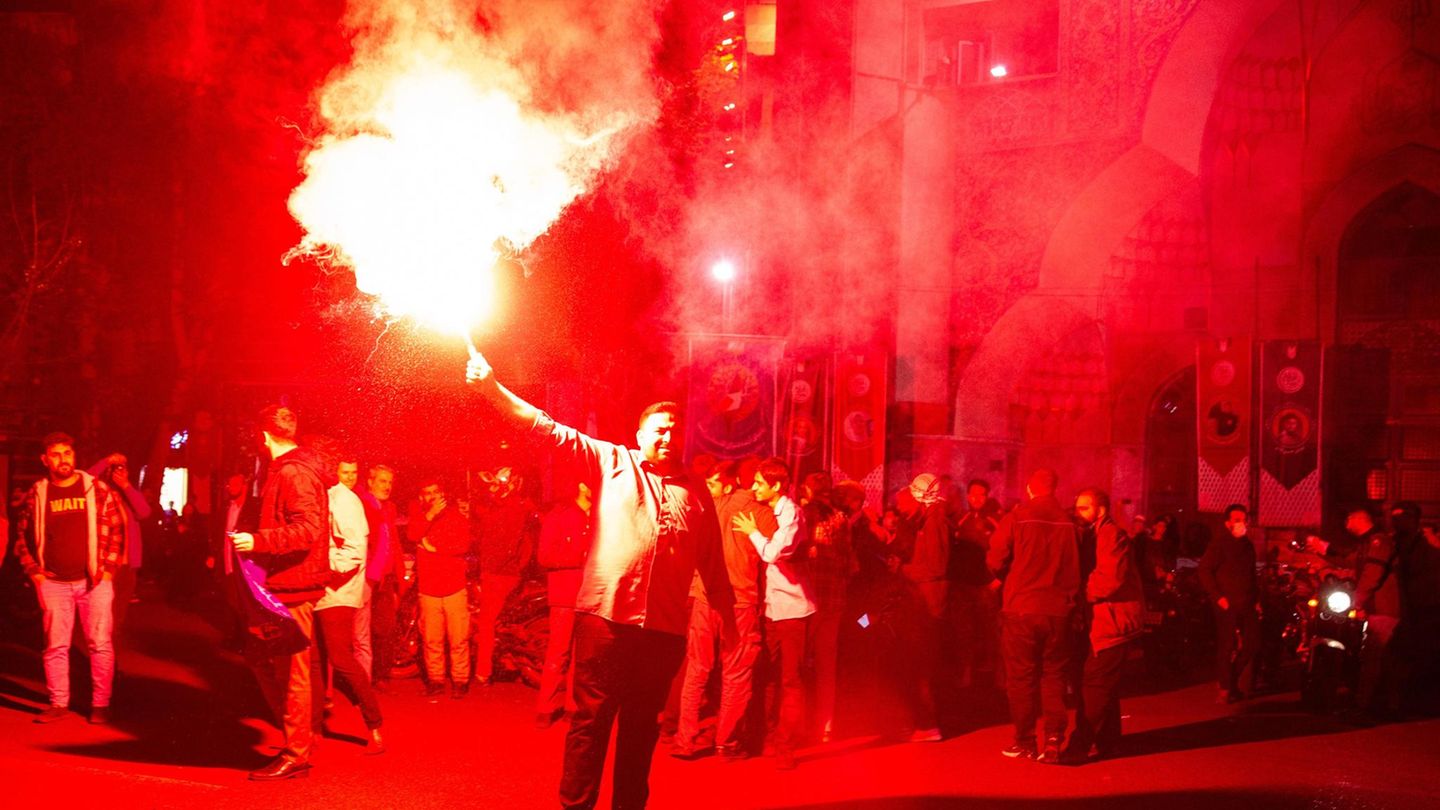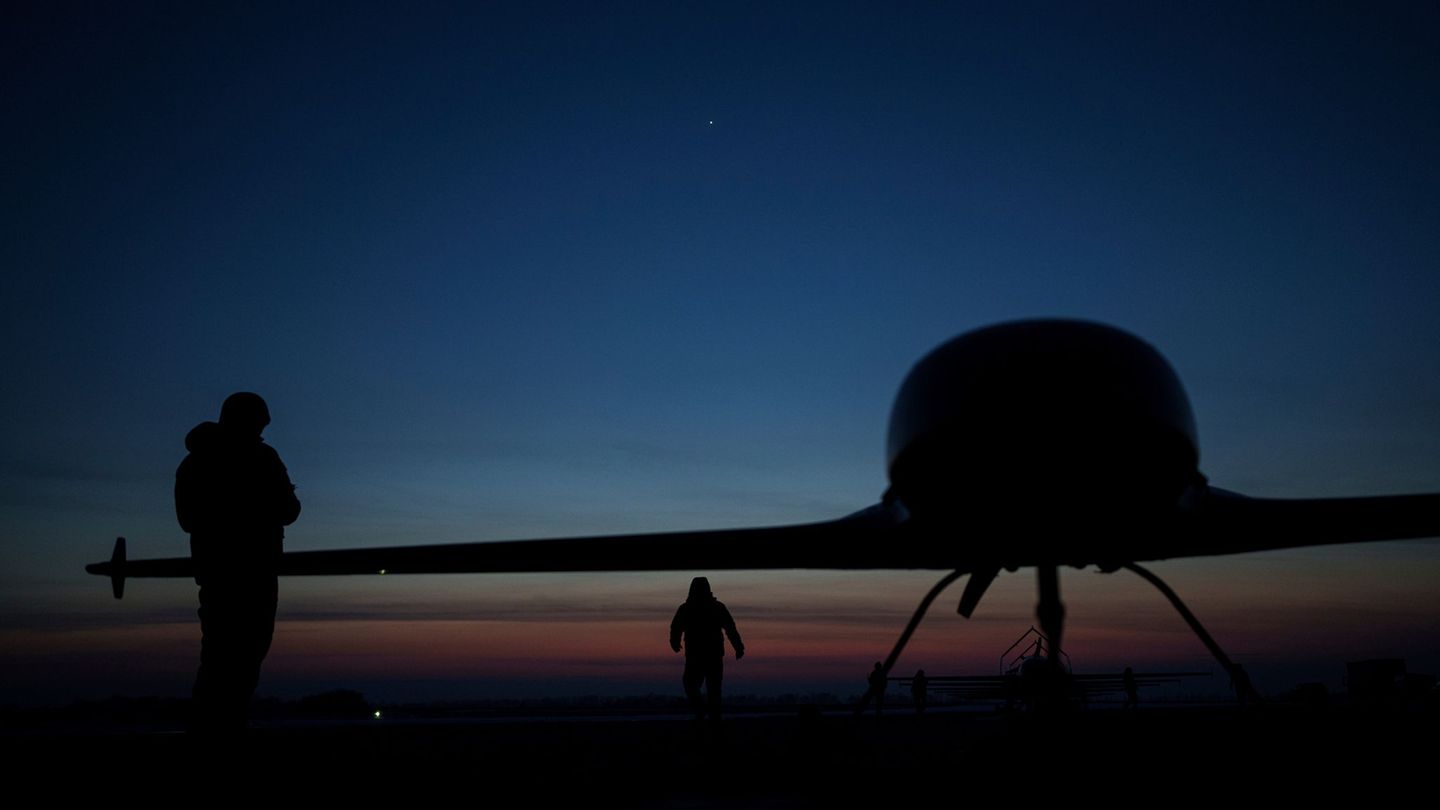Israel is under pressure. The situation in the Middle East is tense after Iran’s first direct major attack. Will Prime Minister Netanyahu withstand the provocation?
Wear nice pajamas today, because there will be a meeting with the neighbors,” wrote someone in the Facebook group “Secret Tel Aviv” last Saturday evening, alluding to upcoming encounters at night in the city’s bunkers. Meanwhile, other users posted macabre cooking recommendations: “Drone, 9 hours of flight time: enough time for ccholent stew. Ballistic missile, 12 minutes flight time: that’s enough for an omelet sandwich.”
Osnat Mordechai, 63, had already been lying in bed in her hotel room, not far from the beach in Tel Aviv. “I knew I couldn’t do anything anyway,” said the retired teacher the next day. “So I took a sleeping pill and forced myself to sleep. We have to learn to believe again that our army is one of the strongest in the world. We have no other choice.”
The good news is that this may have contributed to Israel regaining some of its confidence in its own strength and its own defense. In that legendary self-confidence as a small state in a hostile environment that had been so badly shaken.
Around 350 projectiles, including 170 kamikaze drones, more than 30 cruise missiles and at least 120 ballistic missiles: The arsenal that the Revolutionary Guards of the Islamic Republic and militias allied with Iran in the region, especially the Yemeni Houthis, used in several waves after dark fired at Israel had the potential to cause massive destruction. Hours later, however, when fighter jets thundered through the night over Tel Aviv around 1:45 a.m., as projectiles burned up in the fire of the missile defense and painted streaks of light in the sky above Jerusalem’s Al-Aqsa Mosque – the attack only seemed like an evil ghost . And it was almost over at this point.
Israel’s military said the next morning that 99 percent of the incoming missiles had been intercepted, most of them over the territory of neighboring Arab states before they could reach Israel’s airspace. The “Wall Street Journal” learned from US security circles that every second ballistic missile from Iran did not work when launched or fell out of the sky on its own on the way. A Bedouin girl from the Jordan Valley, seriously injured by the falling part of an intercepted rocket, as well as minor damage at a military airport in the southern Negev desert: that was the extremely mild damage balance of a night that had started ominously.
The situation is tense
The aggressors were nevertheless demonstratively satisfied. “The operation has ended successfully. It has achieved all its objectives,” Iran’s chief of staff, Mohammad Bagheri, said on state television. Immediately after the attack began, the Islamic Republic’s mission to the United Nations in New York issued a call for de-escalation: In response to the Israeli attack on its consulate in Damascus a week ago on Monday, Iran had exercised its legitimate right to self-defense in accordance with Article 51 of the UN Charter was used. Now “the matter can be considered over.” At least if “the Israeli regime” doesn’t make a “new mistake” and the USA stays out of it.
But the pithy words only do a poor job of concealing how tense the situation in the Middle East is after Iran’s first major direct attack on Israel.
Access to all STERN PLUS content and articles from the print magazine
Ad-free & can be canceled at any time
Already registered?
Login here
Source: Stern
I have been working in the news industry for over 6 years, first as a reporter and now as an editor. I have covered politics extensively, and my work has appeared in major newspapers and online news outlets around the world. In addition to my writing, I also contribute regularly to 24 Hours World.




